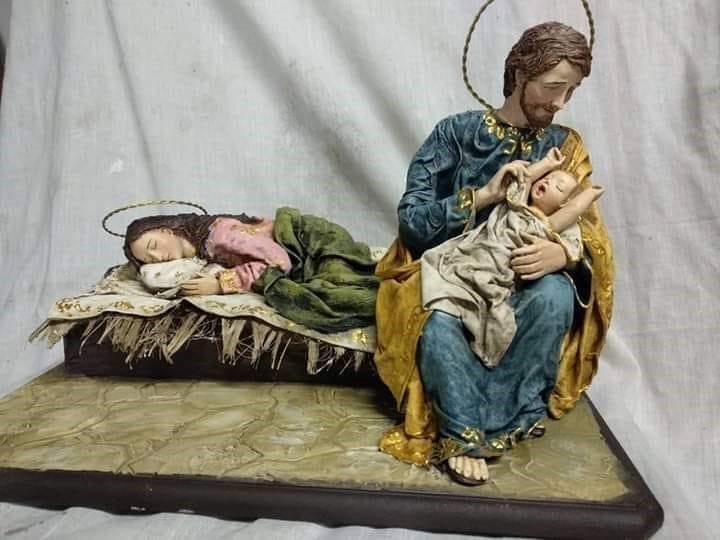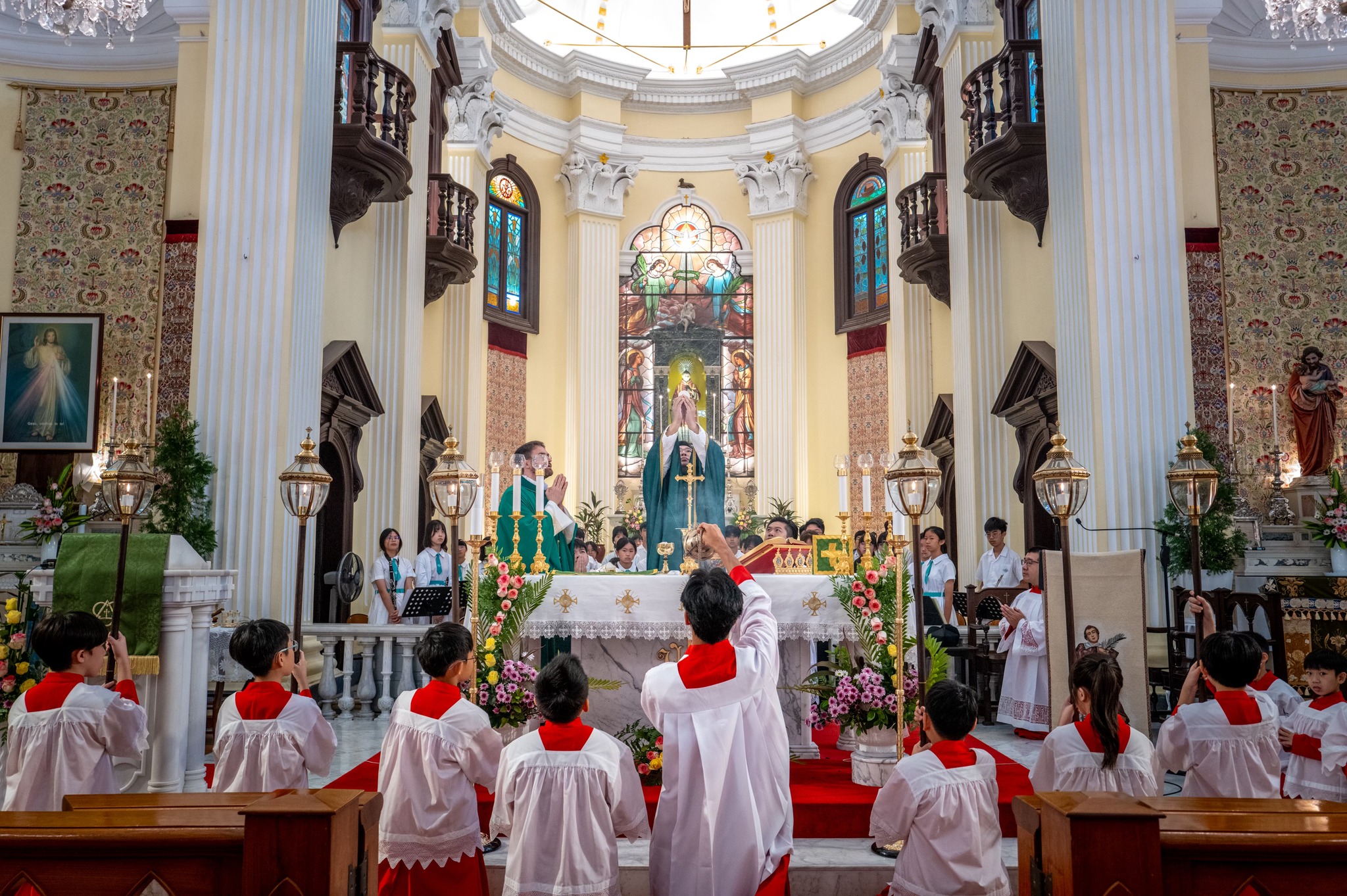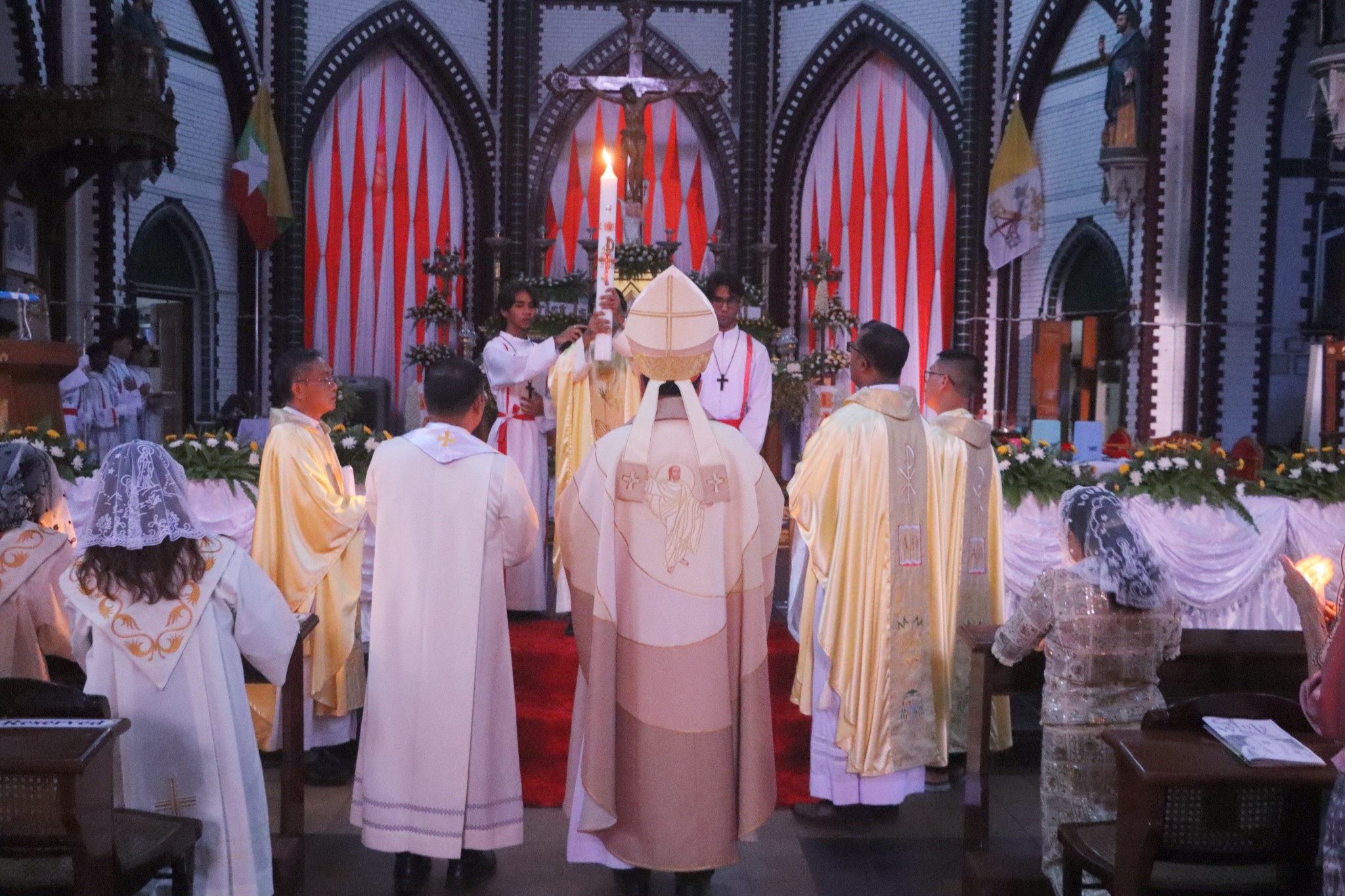– José Maria C.S. André
When the Pope celebrated his 83rd birthday (last December 17), he was offered a photo of a nativity scene that embodies the pastoral program to which he is so committed. This program is the holiness “della porta accanto,” next-door sanctity, commonplace holiness, in the simplicity of daily life. The Pope spoke of the image on the card at the following day’s audience, before tens of thousands of pilgrims, and shared the photograph in his Instagram account.
Many people think that God appreciates extraordinary deeds, such as carrying out a brilliant theological research, or stoically enduring the weather, or torture. The truth is that God prefers the smile, the well-organized work, the friendship, the caring for the family, the serene rest, the hours of leisure, of music and tenderness.
This is why Christmas remains a revolution in the history of religions. Instead of proposing to us the model of the hero or the wise man, God became a baby. It may sound better to say that God become a man, but in fact He became a baby. He stretched, fell asleep, learned to walk, wandered around, mumbled the tenderest words, like any baby. Jesus took on daily life without thinking that simple things were too simple for God.
The crib figures are the accomplished image of a banality that is called to be holy. The Apostolic Letter that the Pope signed on 1 December 2019 in Greccio is entitled Admirabile signum” (wondrous sign), because the crib is a plain and wonderful sign of the Christian faith. All those figures, even the shepherds, the villagers, the herds, the ox and the donkey, symbolize the real world in which God wanted to become incarnate. The pagan gods are solemn and powerful, seated on thrones or with imperial gestures, the Christian God presents Himself on the lap of the mother, or lying in the manger.
The holy card offered to the Pope on his birthday is labelled “Lasciamo riposare mamma” (let mum rest). Francis told the pilgrims in St. Peter’s Square that this scene, so intimate and homely, moved him because it reflects the Christian message of the crib: “‘Let mum rest’ is the tenderness of the family and the couple…. We can also invite the Holy Family to our home, where there are joys and concerns, where every day we wake up, eat, and sleep close to our loved ones. The manger is a ‘domestic Gospel’.”
When St Josemaría Escrivá (founder of Opus Dei) taught that everyone is called to holiness, some priests considered it a heresy. That was the origin of the myth that Opus Dei proposes a secret holiness. It seemed outrageous to them to qualify the love of God in ordinary life as holiness, as St Josemaría preached: “Do everything for Love. Thus there will be no little things: everything will be big. Perseverance in little things for Love is heroism.” Years later, the Second Vatican Council endorsed this message as genuinely Christian. Obviously, it would be enough to remember the parable of Christ: “…Well done, good and faithful servant. You have been faithful over a little; I shall set you over much; enter the joy of your Lord!” Nowadays, Francis has made this message a pastoral program.
Sometimes God performs miracles, but there seems to be something wrong when He does not, because of our tendency to reject normality: “This is not the son of Joseph?”, “the son of Mary?” “the one who lives among us?”…
On the contrary, God blesses commonness. The holy mother of Jesus sang, smiled, worked and, got tired, fell asleep. Blessed sleep! Blessed Joseph, her husband, who watched over Mary’s sleep and entertained Jesus so she wouldn’t wake up!
A few days after celebrating the birth of Jesus, the Church celebrates the feast of the Holy Family. It would be difficult to find a more striking contrast with the dominant religious conceptions. Jesus himself commented one day that “no one is a prophet in his own land”: no one believes that God can be present in the insignificance of a normal family. Well (today’s feast tells us), that’s exactly where God is.


 Follow
Follow


